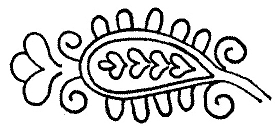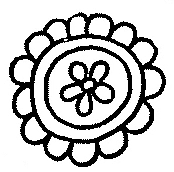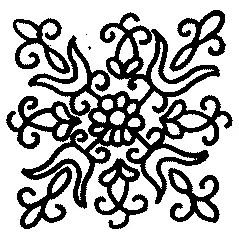The World of Yesterday, Today
Reflections of 2022-2023 in Stefan Zweig's World War disillusionment.
Quotes from Stefan Zweig’s last publication before his suicide as an exile in Brazil in 1942. One translation can be found here. There’s an audiobook.
The book is a general lament of the Belle Époque from a Viennese, secular, upper middle class Jewish perspective. The author is around 60 at the time of writing, and you need to be tolerant of boomertastic attitudes of which he suffers from plenty.
I’ve selected these parts to offer reflection for those who might find it difficult to reflect upon themselves in the past 2 years, since COVID has been replaced by WAR.
In 1914 all the warring nations were already in a state of over-excitation and the worst rumor was immediately transformed into truth, the most absurd slander believed. In Germany men by the dozen swore that they had seen with their own eyes automobiles laden with gold going from France to Russia shortly before the outbreak of the war; the tales of gouged-out eyes and severed hands which appear on the third or fourth day of every war filled the newspapers. They did not know, those innocents who spread such lies, that the accusation of every possible cruelty against the enemy is as much war materiel as are munitions and planes, and that they are systematically taken out of storage at the beginning of every war. War does not permit itself to be coordinated with reason and righteousness. It needs stimulated emotions, enthusiasm for its own cause and hatred for the adversary.
It lies in human nature that deep emotion cannot be prolonged indefinitely, either in the individual or in a people, a fact that is known to all military organizations. Therefore it reguires an artificial stimulation, a constant "doping" of excitement; and this whipping up was to be performed by the intellectuals, the poets, the writers and the journalists, scrupulously or otherwise, honestly or as a matter of professional routine. They were to beat the drums of hatred and beat them they did, until the ears of the unprejudiced hummed and their hearts quaked. In Germany, in France, in Italy, in Russia, and in Belgium, they all obediently served the war propaganda and thus the mass delusion and mass hatred, instead of fighting against it.
The results were disastrous. At that time, propaganda not yet having worn itself thin in peace time, the nations believed everything that they saw in print in spite of thousands of disillusionments. And so the pure, beautiful, sacrificial enthusiasm of the opening days became gradually transformed into an orgy of the worst and most stupid impulses. In Vienna and Berlin one "fought" France and England in the Ringstrasse and the Friedrichstrasse, which was definitely more comfortable. The French and English signs on the shops were made to disappear and even a convent Zu den Englischen Fraulein had to change its name because the people were aroused, not knowing that englische referred to the angels and not the Anglo-Saxons. Sober merchants stamped or pasted Gott strafe England on their letters, and society ladies swore, (so they wrote to the newspapers), that never again would they speak a single word of French. Shakespeare was banned from the German stage, Mozart and Wagner from the French and English concert halls, German professors declared that Dante had been Germanic, the French that Beethoven had been a Belgian, intellectual culture was requisitioned without scruple from the enemy countries like grain and ore. It was not enough that thousands of peace-loving citizens were killing each other daily at the front. In the hinterland there was mutual berating and slandering of the great dead of the enemy countries, who had been slumbering in their graves for centuries. The mental confusion increased in absurdity. The cook at her stove, who had never been outside the city and had never looked at an atlas since her schooldays, believed that Austria could not endure without Sanchschak (a small frontier hamlet somewhere in Bosnia).
Cab drivers argued on the streets about the reparations to be imposed on France, fifty billions or a hundred, without knowing how much a billion was. There was no city, no group that had not fallen prey to this dreadful hysteria of hatred. The ministers preached from their pulpits, the Social Democrats, who but a month before had branded militarism as the greatest crime, clamored perhaps louder than all the others so as not to be classed as "people without a fatherland" in the words of Emperor Wilhelm. It was the war of an unsuspicious generation, and the greatest peril was the inexhaustible faith of the nations in the single-sided justice of their cause.
It soon became impossible to converse reasonably with anybody in the first war weeks of 1914. The most peaceable and the most good-natured were intoxicated with the smell of blood. Friends whom I had looked upon as decided individualists and even as philosophical anarchists, changed over night into fanatic patriots and from patriots into insatiable annexionists. Every conversation ended in some stupid phrase such as: "He who cannot hate cannot really love," or in coarse inculpations. Comrades with whom I had not quarrelled for years accused me rudely of no longer being an Austrian; why did I not go over to France or Belgium? They even hinted cautiously that sentiments such as that the war was a crime ought to be brought to the attention of the authorities, for "defeatists" - that nice word had just been invented in France - were the worst betrayers of the fatherland.
At the end of December 1914, thirty thousand letters came in daily, and finally twelve hundred people crowded together in the little Musée Rath in Geneva to answer and take care of the daily mail [as part of a Red Cross operation]. And among them, instead of selfishly doing his own work, labored the most human of poets: Romain Rolland.
By the time of Zweig’s writing, Romain Rolland, the most human of poets, was the most unapologetic cheerleader of Stalin, despite the purges that he was well aware of. So, grain of paprika and all.
But he had not forgotten his other duty, the duty of the artist to express his convictions even in the face of opposition of his own country and that of the entire belligerent world. In the Autumn of 1914, when most writers were out-shouting each other in hatred, and spat and bellowed atone another, he wrote that notable avowal Au-dessus de la mêlée, in which he fought against intellectual hatred between nations and demanded justice and humanity from all artists even in the midst of war. It was an article which, like no other of its time, aroused opinion and resulted in a controversial literature of its own.
For this was the favorable difference between the First World War and the second: in the first the word still had power. It had not yet been done to death by the organization of lies, by "propaganda," and people still considered the written word, they looked to it. Whereas in 1939 not a single pronouncement by any writer had the slightest effect either for good or evil, and up to the present no book, pamphlet, essay, or poem has stirred the masses to their core.
A sad state of affairs that’s also true to our times.
Aware of this authority of the poet, military leaders and officials sought to secure the services of the men of moral and intellectual prestige for their purposes. They were needed to declare, to prove, to confirm, that all the injustice, all the evil was piled up on the other side, and that all truth and all righteousness were on the side of their own nation. They could not get Rolland to do this.
Whoever reads the eight pages of the famous Au-dessus de la mêlée today will in all probability no longer comprehend its tremendous effect. All that Rolland postulated in it connotes, if read cooly and clearly, nothing but the most obvious of obvious truths. But these words were written in a time of mass insanity that can hardly be reconstructed today.
When the article appeared, the French super-patriots cried out as if they had picked up a red hot iron by mistake. In a trice Rolland was boycotted by his oldest friends, the book- sellers no longer dared to display Jean Christophe, the military authorities, who needed hatred to stimulate their soldiers, were already considering measures against him. One pamphlet after the other appeared with the argument: Ce qu 'on donne pendant la guerre d l'humanite est volé de la patrie. (What is given during the war for humanity is stolen from the homeland) But as always, the outcry proved that the blow had struck home.
Via Wikipedia:
At the beginning of November 1915, the press announced that the Nobel Prize in Literature was to be awarded to Rolland. This was seen by French nationalist intellectuals as an affront to their national honor. A few days later, amid heavy criticism in the press, and perhaps due to diplomatic pressure, the Swedish Academy announced that it would not award a prize in literature for 1915. The following year, however, it awarded the prize to Rolland as a "tribute to the great idealism of his writings as well as for the sympathy and truth with which he painted different types of humans."
Zweig visits Budapest (1917)
The hospital train in which I was returning [from the Eastern Front] arrived in Budapest in the early morning hours. I drove at once to a hotel to get some sleep; my only seat in the train had been my bag. Tired as I was, I slept until about eleven and then quickly got up to get my breakfast. I had gone only a few paces when I had to rub my eyes to make sure that I was not dreaming. It was one of those brilliant summer days that are spring in the morning and summer at noon, and Budapest was as beautiful and carefree as ever before.
Women in ·white dresses walked arm in arm with officers who suddenly appeared to me to be officers of quite a different army than that I had seen only yesterday and the day before yesterday. With the odor of iodoform of yesterday's ambulance train still in my clothes, my mouth, my nose, I saw how they bought bunches of violets and gallantly tendered them to their ladies, saw spotless automobiles with smoothly shaved and spotlessly dressed gentlemen ride through the streets. And all this but eight or nine hours away from the front by express train. But by what right could one judge these people? Was it not the most natural thing that, living, they sought to enjoy their lives? That because of the very feeling that everything was being threatened, that they had gathered together all that was to be gathered, the few fine clothes, the last good hours! It was just because one had seen how frail and perishable man is, whose life with all its memories, ecstasies, and knowledge can be destroyed in the thousandth part of a second by a little piece of lead, that one understood, why multitudes thronged to the gleaming river to join in the morning promenade, to see the sun, to feel themselves, their own blood, their own lives with perhaps heightened power. I had become almost reconciled to what at first had shocked me. But unfortunately the attentive waiter just then brought me a Viennese newspaper.
I tried to read it; and only then was I filled with rage and disgust. Here were all the phrases about the inflexible will to conquer, about the petty losses of our own troops and the gigantic losses of the enemy. Here it jumped out at me, naked, towering and unashamed, the lie of the war! No, it was not the promenaders, the careless, the carefree, who were to blame, but those alone who drove the war on with their words. But we too were guilty if we did not do our part against them.
It was only now that the true impulse was given me: one had to fight against war! The material lay ready within me, only this last visible confirmation of my instinct had been lacking to make me start. I had recognized the foe I was to fight-false heroism that prefers to send others to suffering and death, the cheap optimism of the conscienceless prophets, both political and military who, boldly promising victory, prolong the war, and behind them the hired chorus, the "word makers of war" as Werfel has pilloried them in his beautiful poem. Whoever voiced a doubt hindered them in their patriotic concerns, whoever uttered a warning was ridiculed as a pessimist, whoever fought against the war in which they themselves did not suffer was branded as a traitor. It has always been the same, the eternal pack throughout the times, calling the prudent cowardly, the humane weak, only to be lost in the hour of catastrophe which they themselves wantonly conjure up.
From the very beginning I had no faith in victory and was certain of but one thing: that even if it could be achieved by immeasurable sacriftce, it could never justify that sacrifice. But I remained always alone among my friends with this warning, and the confused shouting about victory before the first shot, the division of the spoils before the first battle, often caused me to wonder if I alone were mad among all these wise men, or perhaps alone horribly aware in the midst of their intoxication.
A victorious peace (1917)
In Salzburg there was a small group of rigorously Catholic-minded men, two of whom were to play determining roles as chancellors in the post-war history of Austria, Heinrich Lammasch and Ignaz Seipel. The former was the most eminent teacher of public law of his day and had been chairman of the Peace Conference at The Hague; the other, Ignaz Seipel, a Catholic prelate of almost uncanny intelligence, was destined to take over the leadership of diminutive Austria after the collapse of the monarchy and upon that occasion give proof of his distinguished political genius. Both were pronounced pacifists, orthodox Catholics, fanatical 0ld-Austrians and, as such, in deep-rooted opposition to German, Prussian, Protestant militarism which they held to be incompatible with the traditional ideas of Austria and her Catholic mission.
If the pan-German clique in Germany continued to resist negotiations, Austria would have to take the initiative and act independently. He indicated that the young Emperor Karl had promised his support of their purposes; the result of his personal policy might very shortly become evident.
Well. Austrian bravery will surely prevail.
All depended now on whether Austria could muster enough energy to put through a negotiated peace instead of the "Victorious Peace" which the German military party demanded regardless of further sacrifices. At a pinch they would have to go the limit: Austria would have to renounce its alliance in good time, before the German militarists dragged her down to catastrophe. "Nobody can accuse us of a breach of faith," he said firmly and determinedly. "More than a million of our men are dead. We have sacrificed and done enough! Now, no more human lives, not a single one for German world-domination."
Boldog Karácsonyt!
For the new year
My comment from Niccolo’s article where wanted predictions for the current wars:
Ukraine and Russia forming an alliance and marching to The Channel unopposed.
It’s a wild one, but why not?








